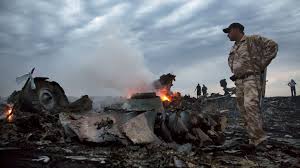The Tragic Legacy of MH17: Air Travel and Safety Reform

Introduction
The tragic downing of Malaysia Airlines Flight MH17 on July 17, 2014, remains a pivotal moment in aviation history. The event resulted in the loss of 298 lives and exposed significant vulnerabilities in aviation safety amidst conflict zones. The importance of MH17 extends beyond the immediate sorrow, as it has spurred vital discussions on enhancing regulations and safety measures in commercial aviation. Understanding the events surrounding MH17 is crucial not only for remembrance but also for preventing future tragedies.
The Events of July 17, 2014
Flight MH17 was en route from Amsterdam to Kuala Lumpur when it was shot down over Eastern Ukraine, a region embroiled in conflict between Ukrainian forces and pro-Russian separatists. Investigations led by the Dutch Safety Board concluded that the aircraft was brought down by a Russian-made surface-to-air missile, resulting in calls for accountability and justice.
Investigations and Findings
The Joint Investigation Team (JIT), which included investigators from the Netherlands, Australia, Belgium, Malaysia, and Ukraine, has worked tirelessly to identify those responsible for the disaster. In 2020, the JIT charged four suspects, all allegedly affiliated with Russian forces. The detailed investigation highlighted not only the geopolitical tensions of the area but also raised questions about the existing air traffic regulations that allowed flights to traverse conflict zones.
The Legacy of MH17
In the aftermath of the disaster, there have been significant moves toward reforming international aviation safety protocols. The International Civil Aviation Organization (ICAO) has implemented measures aimed at improving the sharing of information regarding air traffic and conflict zones. Airlines and flight operators are now encouraged to reevaluate their routing approaches to avoid areas of conflict more rigorously.
Commemoration and Remembrance
Each year on the anniversary of the tragedy, memorial events are held in honor of the passengers and crew members who lost their lives. Families and advocates continue to seek justice while emphasizing the need for universal changes in aviation policies and practices to safeguard against similar incidents in the future.
Conclusion
The MH17 disaster is a stark reminder of the complexities involved in international aviation and the global responsibility to ensure safe travel for all. As reforms continue to develop in response to this tragedy, it is imperative for both governments and the aviation industry to prioritize safety over operational convenience to restore faith in air travel for the public. Ongoing efforts to hold accountable those responsible for this senseless loss must persist to honor the memory of those aboard MH17 and to work towards making air travel safer for everyone.









